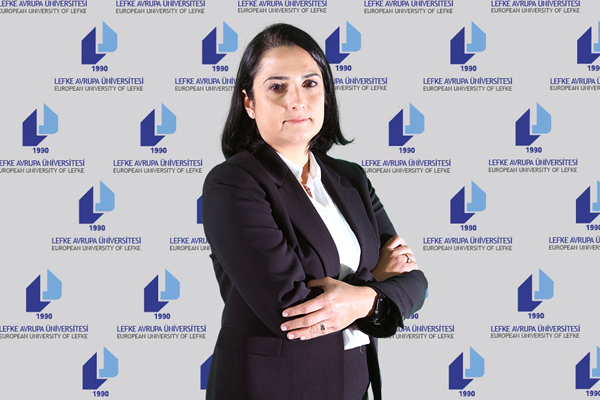EUL Faculty Member Kalkan made a statement within the scope of 21 March World Down Syndrome Day

European University of Lefke (EUL), Faculty of Medicine lecturer Prof. Dr. Rasime Kalkan made statements on March 21, World Down Syndrome Awareness Day. Kalkan expressed that “Down syndrome was first described by the British physician John Langdon Down in 1866. In 1959, it was shown by Jérôme Lejeune that the 21st chromosome was not two but three. The United Nations has declared March 21 as World Down Syndrome Awareness Day in order to raise social awareness about Down syndrome all over the world, and various awareness activities are organised around the world today.”
“Down syndrome is a genetic difference, not a disorder”
“Down Syndrome is a genetic difference caused by the presence of an extra chromosome in the 21st chromosome pair,” Kalkan stated the following about Down Syndrome; It can be seen in every 800-1000 births. Genetically, it can appear in different forms. At this point; as a result of the presence of 3 copies of the 21st chromosome in all cells, the individual may have 47 chromosomes, or in the form we call translocation type, a part of the 21st chromosome breaks off and adheres to another chromosome (such as the 15th chromosome). The individual has 46 chromosomes in terms of number, but has 47 chromosomes in terms of genetic information. In the mosaic form, the individual has cells with two different chromosome arrangements (46 chromosomes and 47 chromosomes). Our knowledge of the genetic origin guides us for subsequent pregnancies in the family. Down syndrome can be screened during pregnancy with tests such as double screening test, triple screening test or ultrasonography. Based on the results of these tests, a definitive diagnosis can be made by chorionic villus sampling (CVS) or amniocentesis if necessary. The genetic diagnosis in infants or adults can be made by chromosome analysis of peripheral blood.
“Individuals with Down syndrome can lead successful lives with timely and well-designed education.
“Children with Down syndrome have needs that are not fundamentally different from those of other children. Like all children, they desire to be loved, accepted in society, play, learn, and explore. Therefore, with timely and well-designed education, they can lead successful lives and integrate into society. In this context, it is possible to achieve many successes with a well-designed education program that includes necessary physical therapy and rehabilitation programs, speech therapy, and special education,” stated Kalkan. “It should be our top priority to provide equal opportunities and strengthen their place in society, remembering that individuals with Down syndrome are part of the community.”
